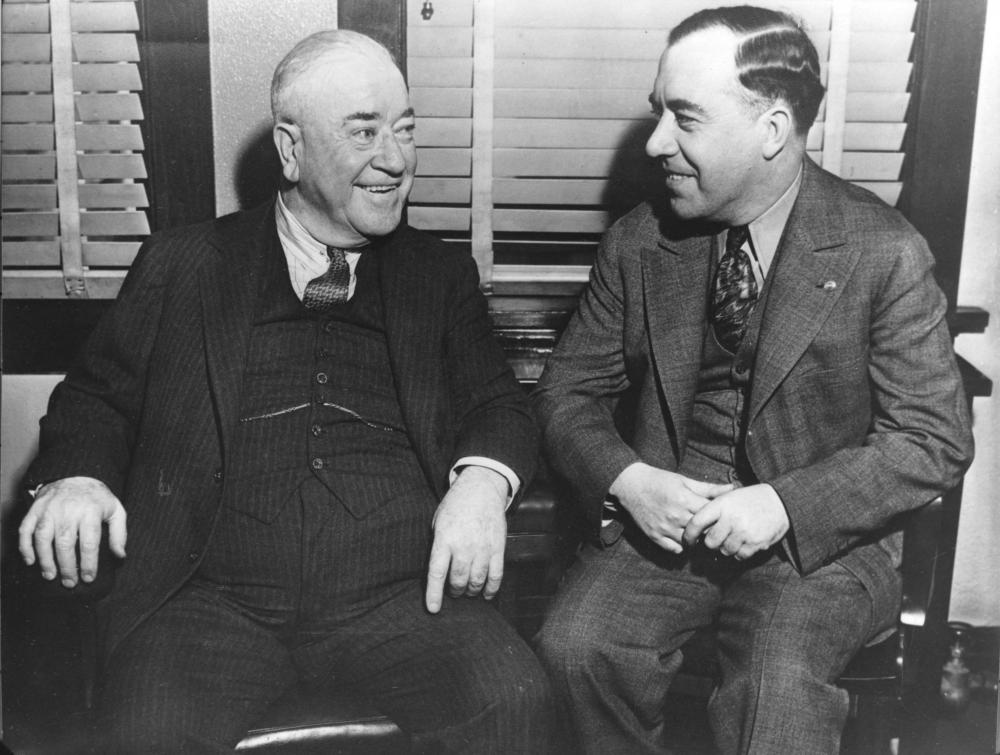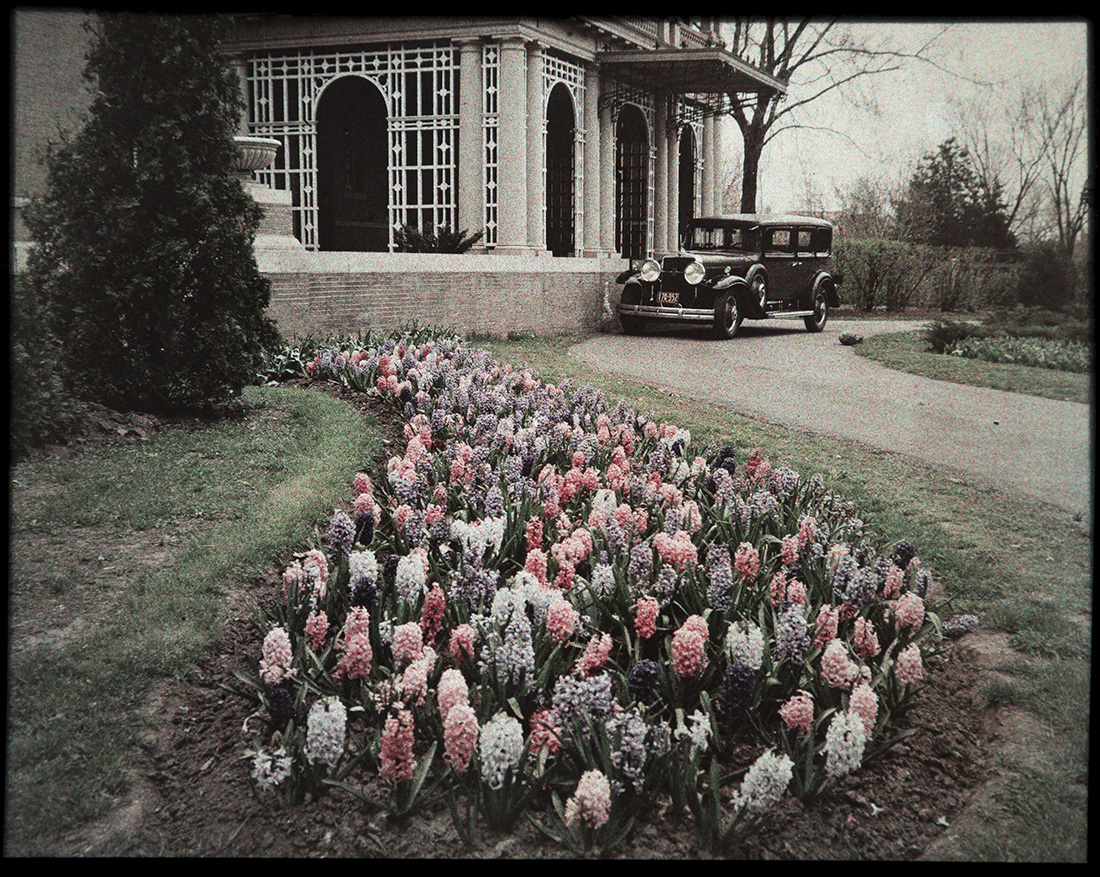The History

In terms of cultural achievements, economic dynamism, and national relevance, the 1920s are often remembered as a pinnacle in Kansas City's history. Such nostalgia stems from the confluence of several factors, not the least of which was its central location in the continental United States and the successful melding of its distinctive Old West "cowtown" cultural roots with a modern environment of art deco skyscrapers and avant-garde cultural institutions. Its economic achievements could be seen in extensive railroad connections, the second-busiest stockyards in the world, a world-class garment industry, a plethora of national conventions, innovative and trend-setting suburban communities, and a rapidly growing population.
People with diverse backgrounds further enriched Kansas City, as prominent women and racial minority leaders confronted traditional legal and political barriers to progress. A flourishing nightlife scene grew up around the African American community at 18th & Vine St., where a unique "Kansas City style" of jazz emerged. In the midst of such cultural florescence, Kansas City seemed to have a knack for attracting or raising famous names: author Ernest Hemingway, who wrote for the Kansas City Star; Walt Disney's first animation studio; painter Thomas Hart Benton; pathbreaking female lawyer Mary Tiera Farrow; architect Nelle Nichols Peters; President Harry S. Truman. This is to say nothing of the famous jazz musicians and baseball stars of the Negro Leagues, among whom were bandleader Bennie Moten, saxophonist Charlie Parker, pitcher Satchel Paige, and so many others.
Of course, many of the most notorious memories from Kansas City in the Jazz Age and Great Depression relate to the same characteristics that the era is remembered for nationally—mobsters and ward bosses, speakeasies and bootleg liquor, Tommy Guns and massacres. Kansas City had all of them and produced such notorious figures as the "rabbit" Democratic boss Joe Shannon, Italian North End leader Johnny Lazia, mobster Charlie "the Wop" Carollo, and the boss of "Little Tammany," Cas Welch.

For nearly a decade and a half between 1925-1939, political boss Thomas J. Pendergast (or simply "Boss Tom"), an unelected dealmaker and leader of the "goat" faction of the local Democratic Party, and longtime rival of Shannon's "rabbits," consolidated control of Kansas City's machine politics and ruled Kansas City's government and criminal underworld with impunity. Boss Tom, the namesake of this website, overshadowed Kansas City and exerted influence on many of the best and worst aspects of its history throughout his reign.
Kansas City—although in the midst of something resembling a golden age in so many ways—also became known as America's "wide-open" town, where mainstream commerce and high-brow culture intermingled with the gambling, bootlegging, embezzlement, election fraud, bribes, and prostitution that were inextricably linked to the activities of political bossism. The Pendergast Years brought historical highs and lows to Kansas City, and the aftermath of Pendergast's downfall in 1939 eventually had a moderating effect on both. As reform efforts swept in and the Pendergast Years faded away, so did many aspects of the city's Jazz Age identity.
Project Description

It is the aim of this project to move beyond existing nostalgia for the Pendergast Years, uncover facts and documentation, and prompt new research to arrive at a deeper understanding of the period. These resources will allow students, researchers, and the general public to draw meaningful lessons from this transformational period in Kansas City's history.
The project began in partnership with the Center for Midwestern Studies at the University of Missouri-Kansas City (UMKC) with the convening of more than a dozen scholars in a peer review workshop in the fall of 2015 and in a public symposium at the Kansas City Public Library in the spring of 2016. The researchers come from a variety of backgrounds, including universities, libraries, and archives. Their body of work culminates with the leading articles found on the topic pages of this website and in a longer format in the book, Wide-Open Town: Kansas City in the Pendergast Era (University Press of Kansas, November 2018).
This project is directly modeled on the collaborative, multiple award-winning endeavor, Civil War on the Western Border: The Missouri-Kansas Conflict, 1854-1865. As with the Civil War project, the Pendergast Years website merges primary sources from over a dozen archival partners with original scholarship, maps, timelines, and other interpretive features to provide an interactive, immersive experience.
Editorial Oversight
Bryan F. Le Beau, Ph.D.
Bryan Le Beau recently retired as professor of history, Provost, and Vice president for Academic Affairs at the University of Saint Mary. He is the author of several books on topics in American cultural and religious history, and he was the Lead Scholar for the multiple award-winning Civil War on the Western Border: The Missouri-Kansas Conflict, 1854-1865, a collaborative website from the Kansas City Public Library and its partners. He is the lead scholarship coordinator for The Pendergast Years.
Diane Mutti Burke, Ph.D.
Diane Mutti Burke is professor of history at the University of Missouri-Kansas City, chair of its History Department, and director of its Center for Midwestern Studies, which partnered with the Kansas City Public Library to put on the Wide-Open Town symposium on the Pendergast era in the spring of 2016, and is the lead co-editor for the book, Wide-Open Town: Kansas City in the Pendergast Era. She is deeply engaged in bringing the history of this region to the public and has consulted with multiple cultural institutions in the region about their Civil War Sesquicentennial programming. In addition to authoring numerous articles and her award-winning book, On Slavery’s Border: Missouri’s Small-Slaveholding Households, 1815-1865 (University of Georgia Press, 2010), she co-edited Bleeding Kansas, Bleeding Missouri: The Long Civil War on the Border (University Press of Kansas, 2013).
John Herron, Ph.D.
John Herron is a professor of history and associate dean of the College of Arts and Sciences at the University of Missouri-Kansas City. He is a scholar of 19th century America with a research focus in Western history and environmental studies. Many of his current projects explore the cultural and environmental history of Kansas City and the American Midwest. With his colleague Diane Mutti Burke and Jason Roe, he co-chaired the Wide-Open Town symposium and is co-editing the volume, Wide-Open Town: Kansas City in the Pendergast Era (University Press of Kansas, anticipated fall 2018).
William Worley, Ph.D.
William S. (Bill) Worley (Ph.D., University of Kansas, 1986) has been living with Kansas City history for over 40 years. He is professor of history at Metropolitan Community College—Blue River, after having served for eight years as director of the Kansas City Regional History Institute at the University of Missouri—Kansas City. Among his published work are J.C. Nichols and the Shaping of Kansas City (University of Missouri Press, 1990) and Kansas City: Rise of a Regional Metropolis (Heritage Media Corporation, 2002). Worley's interest in Pendergast resulted from his living history portrayals of the Boss that began in 1992 and include the pilot presentation (with Library Director Crosby Kemper) for the Kansas City Public Library's "Meet the Past" series. A native of eastern New Mexico, Worley and his wife Kathryn live in Hyde Park, midtown Kansas City.
Staff
Art Director
web design
Metadata Specialist
collection curation, metadata, web publishing
Digital Branch Librarian
web publishing
Digital Branch Manager
project management, fundraising, web design
Senior Web Developer
web development, web design
Project Associate
metadata, transcription
Sponsors
Digital Imaging Grants
Institute of Museum & Library Services under provisions of the Library Services and Technology Act, as administered by the Missouri State Library, a Division of the Office of Secretary of State, 2016-2018.
Interpretive Grant
Freedom's Frontier National Heritage Area, 2016-2017, (the Freedom's Frontier National Heritage Area also supported the Wide-Open Town Symposium).
Major Grant
Missouri Humanities Council with support from the National Endowment for the Humanities, 2016-2017, (the Missouri Humanities Council also supported the Wide-Open Town Symposium).
Launch Event
Tom's Town Distilling Co. for their ongoing support, and generous contribution of in-kind services, refreshments and event space for our launch fundraiser.
Special thanks are owed to individual donors who have supported scholarship developed for this website, including Steve Noll and John Dillingham.
Additional thanks are owed to the Center for Midwestern Studies at UMKC, UMKC's Funding for Excellence Grant, UMKC's Bernardin Haskell Lecture Fund, and UMKC's High School College Dual Credit Partnership for their co-sponsorship of the Wide-Open Town Symposium.
Print Volume
Check out the accompanying book, Wide-Open Town: Kansas City in the Pendergast Era (University Press of Kansas, 2018), edited by Diane Mutti Burke, Jason Roe, and John Herron, and winner of the 2019 Book Award from the Missouri Conference on History.